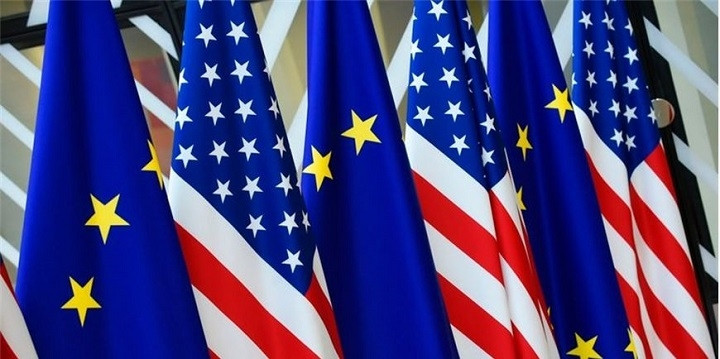Trade disputes between the EU and the US have become fierce since June 2018, when former US President Donald Trump decided to impose a 25% tariff on steel and 10% tax on aluminium from the EU and some other trading partners. The EU immediately retaliated by enforcing tariffs on US$2.8 billion worth of US products, including many key items such as bourbon, jeans, orange juice and Harley-Davidson motorcycles. In addition, France, Spain and some other EU countries imposed digital service taxes on major US technology firms.
However, after Joe Biden was sworn in as the new US President, the US-EU alliance has “set sail” again. Bilateral trade conflicts are gradually easing as the two sides have showed dialogue goodwill to resolve disagreements. Specifically, they have agreed to suspend the imposition of retaliatory tariffs for four months regarding the dispute over subsidies to two aircraft manufacturers Airbus and Boeing, which has been ongoing for two decades. The two sides have also reached consensus on conducting talks to end retaliatory trade measures. In addition, the EU recently announced the postponement of plans to raise tariffs on US imports set to take effect June 1.
Statements by European and US trade officials over the weekend emphasised that the two sides agreed to prevent policy changes from negatively affecting bilateral trade relations. They also expressed optimism about the prompt addressing of US-EU trade disagreements. Speaking at a hearing before the US House of Representatives Committee on Ways and Means, US Trade Representative Katherine Tai said that the US and the EU are making efforts to resolve the dispute between Boeing and Airbus, as well as the current excess capacity in steel and aluminium.
Media from EU countries revealed that the EU and the US have set the aim of resolving bilateral trade disputes in the next two months. Over the weekend, media outlets quoted European Commission Vice-President Valdis Dombrovskis as saying that the EU and the US recently conducted in-depth and extensive discussions on bilateral trade issues and have agreed on efforts to conclude negotiations this July. Dombrovskis assessed that although the process of ending trade conflicts still requires efforts from both sides, the ongoing progress shows that the aforementioned timeframe is quite “feasible”. Meanwhile, German Economy Minister Peter Altmaier hailed the discussions with the US side as being “constructive”, opening a “historic door for the opportunity to resolve the US-EU trade dispute”.
Analysts stated that the tackling of trans-Atlantic trade disputes between the two major partners is “within reach”. The moves of de-escalation and reconciliation between the two sides in the field of trade indicate that US-EU trade relations will soon return to the “old normal”. This is not only a positive signal for businesses of both sides, but also opens better recovery opportunities for global trade and economy.
















